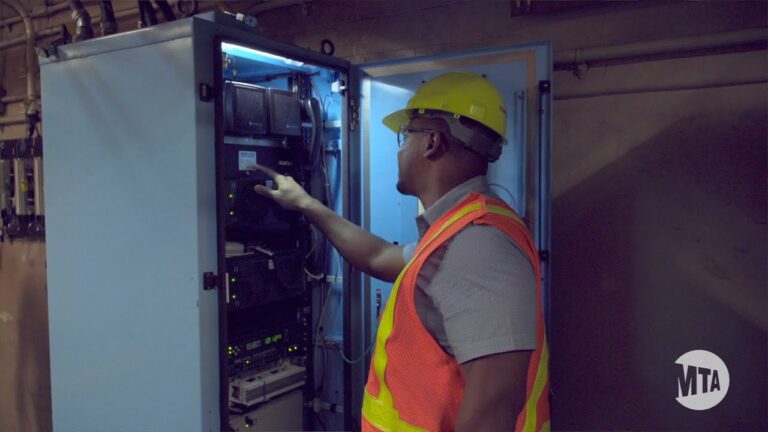Stage Crew Job: Description & Salary

Stage Crew Job Description Template
Stage Crew Job Description Stage crew members play a vital role in the successful execution of live performances, including theater productions, concerts, and other events. They work behind the scenes to ensure that everything runs smoothly and efficiently. The primary responsibilities of stage crew members include setting up and dismantling sets, props, and equipment, as well as operating lighting and sound systems during performances. They are responsible for ensuring the safety of performers and crew members by following proper protocols for handling equipment and executing scene changes. Additionally, they may be required to assist with costume changes, cueing actors, and other backstage tasks. Attention to detail and the ability to work under pressure are crucial qualities for stage crew members. They must be able to quickly adapt to changing circumstances and problem-solve on the spot. Effective communication and teamwork skills are also important as they need to coordinate with other crew members and performers to ensure a seamless production. Stage crew members often work long and irregular hours, including evenings, weekends, and holidays. They may need to work in various environments, including theaters, outdoor venues, and concert halls. While formal education is not always required, some technical training or experience in theater production can be beneficial. In conclusion, stage crew members are essential to the overall success of any live performance. Their hard work and dedication behind the scenes contribute to creating a memorable and enjoyable experience for the audience.Stage Crew Responsibilities
Stage Crew Requirements
- Physical strength and ability to lift heavy objects
- Knowledge of basic construction and tools
- Ability to work well as part of a team
- Good problem-solving skills
- Attention to detail
- Ability to follow instructions and work quickly
- Flexibility and adaptability
- Good communication skills
- Ability to work in a fast-paced environment
- Basic knowledge of lighting and sound equipment
- Ability to work evenings and weekends
- Willingness to learn and take on new tasks
- Ability to work under pressure and meet deadlines
- Knowledge of safety regulations and procedures
How Much Does A Stage Crew Make?
Stage Crew Salary
| Position | Minimum Salary | Maximum Salary |
|---|---|---|
| Stagehand | $25,000 | $40,000 |
| Assistant Stage Manager | $30,000 | $45,000 |
| Stage Manager | $40,000 | $60,000 |
| Technical Director | $50,000 | $75,000 |
Stage crew salaries vary depending on the position and level of experience. The minimum and maximum salaries provided in the table are approximate values and may vary based on factors such as location, company size, and industry standards. Stagehands generally earn between $25,000 and $40,000 per year, while assistant stage managers can expect to make between $30,000 and $45,000. Stage managers, who have more responsibilities, typically earn between $40,000 and $60,000 annually. Technical directors, who oversee the technical aspects of productions, tend to earn higher salaries ranging from $50,000 to $75,000 per year. It’s important to note that these figures are just estimates and can be influenced by various factors.
Stage Crew Salaries by Country
Top Paying Countries for Stage Crew
| Country | Average Salary (USD) |
|---|---|
| United States | $45,000 |
| Canada | $40,000 |
| Australia | $38,000 |
| United Kingdom | $35,000 |
| Germany | $33,000 |
In the field of stage crew, salaries can vary significantly based on the country of employment. The table above showcases the top paying countries for stage crew professionals. According to the data, the United States offers the highest average salary of $45,000 per year, followed by Canada with $40,000 and Australia with $38,000. The United Kingdom and Germany also provide competitive salaries, averaging at $35,000 and $33,000 respectively. It is important to note that these figures are approximate and can vary depending on factors such as experience, qualifications, and specific job roles within the stage crew industry.
A video on the topic Stage Crew
Video Source : Central CatholicInterview Questions for Stage Crew
1. What does a stage crew do?
A stage crew is responsible for setting up and maintaining the stage and all the equipment needed for a performance or event. They handle props, set pieces, lighting, sound systems, and other technical aspects of a production.
2. What skills are required to be part of a stage crew?
Some important skills for a stage crew member include teamwork, organization, problem-solving, time management, physical strength, and technical knowledge of equipment and tools used in theater production.
3. How do you handle tight deadlines and time constraints in stage crew work?
When faced with tight deadlines and time constraints, it is important to prioritize tasks, communicate effectively with team members, and work efficiently. Flexibility and adaptability are also key in order to handle unexpected changes and challenges.
4. What is the role of a stage manager in a stage crew?
A stage manager is responsible for coordinating all aspects of a production, including scheduling rehearsals, cueing performers and crew members, overseeing backstage operations, and ensuring that the show runs smoothly.
5. How do you ensure the safety of performers and crew members during a production?
Ensuring safety during a production involves conducting regular safety checks of equipment, maintaining a clean and organized backstage area, providing proper training on equipment usage, and following safety protocols and procedures at all times.
6. Can you explain the process of setting up a stage for a performance?
The process of setting up a stage typically involves unloading and assembling set pieces, arranging props, setting up lighting and sound equipment, testing and adjusting technical elements, and ensuring that everything is in place for the performers.
7. How do you troubleshoot technical issues during a performance?
When faced with technical issues during a performance, it is important to stay calm and focused. The first step is to identify the problem and determine if it can be fixed quickly. If not, the stage crew should have backup plans or alternative solutions ready to minimize disruptions to the show.
8. How do you ensure effective communication within the stage crew?
Effective communication within the stage crew involves clear and concise instructions, active listening, and regular updates on tasks and progress. It is also important to establish a hierarchy and chain of command to ensure smooth coordination and decision-making.
9. Can you describe a situation where you had to work under pressure in a stage crew?
One example of working under pressure in a stage crew is when there is a last-minute change to the set design or script. In such situations, the crew needs to quickly adapt and make necessary adjustments to ensure a seamless performance.
10. How do you handle conflicts or disagreements within the stage crew?
Conflicts and disagreements within a stage crew should be addressed calmly and professionally. It is important to listen to all perspectives, find common ground, and work towards a resolution that benefits the production as a whole. Open communication and respect for each other’s opinions are key in resolving conflicts.






